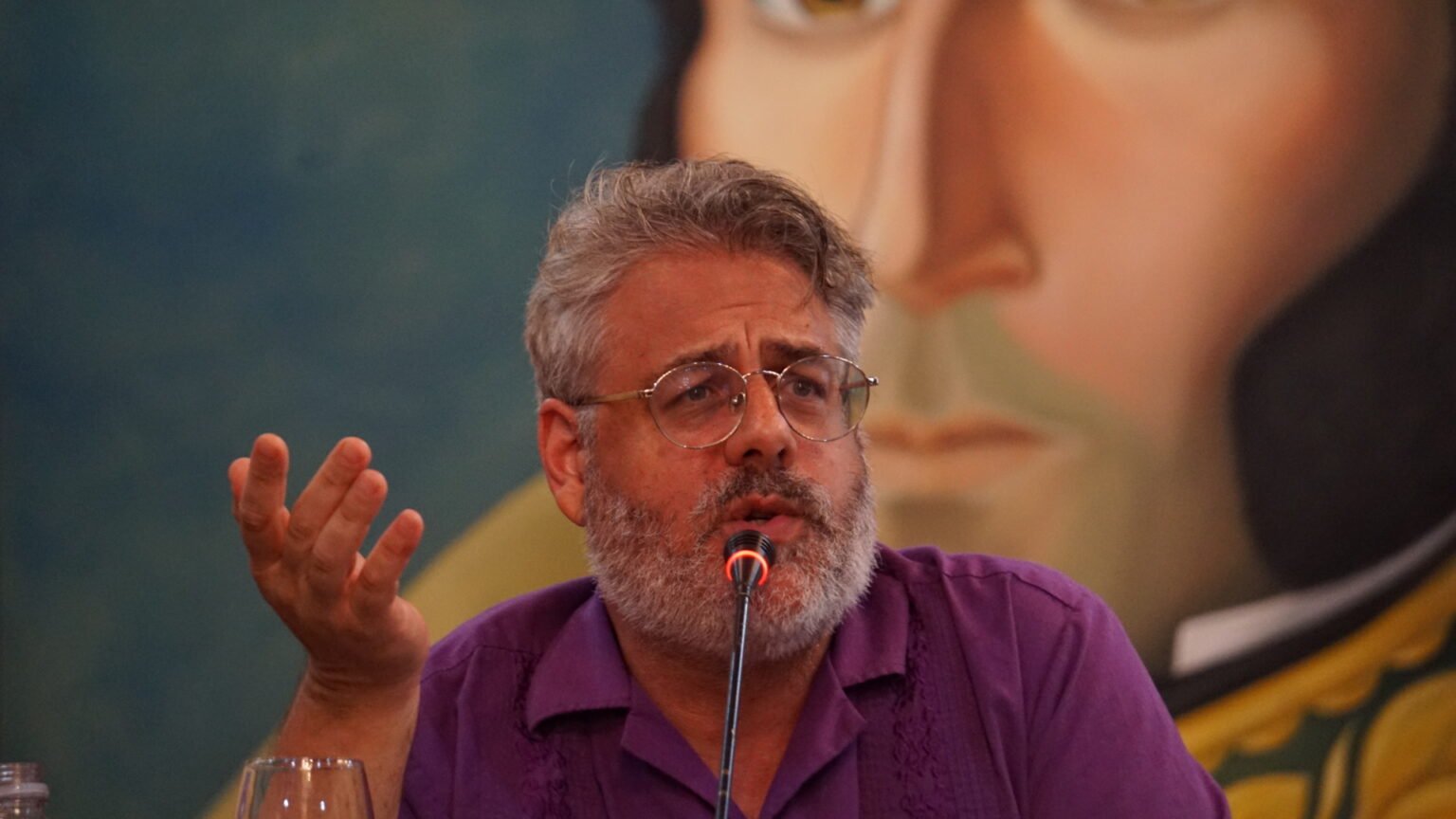Steven Sahiounie, journalist and political commentator
Tensions eased after US President Biden announced that putting American troops on the ground in Ukraine to deter a potential Russian invasion was “not on the table,” following a virtual summit between Biden and Russian President Putin on Tuesday.
Last week, Russian Foreign Minister Sergey Lavrov warned of the US and NATO risking a “nightmare scenario of military confrontation” in Europe following NATO’s expanding military infrastructure in Ukraine. While speaking at a conference of the Organization for Security and Co-operation in Europe (OSCE), Lavrov cited NATO’s military infrastructure being irresponsibly brought closer to Russia’s borders, and deploying an anti-missile defense system that could be used as a strike complex.
Since 2014, Ukraine has emerged as a major geopolitical dividing line between the West and Russia.
Ukraine is not a full NATO member, but Putin views NATO’s growing influence in Ukraine as a threat, and expressed concern over NATO and US military activities in the Black Sea region.
Steven Sahiounie of MidEastDiscourse has interviewed Dan Kovalik to gain insight into the backstory of the unfolding international news headline.
Dan Kovalik teaches International Human Rights at the University of Pittsburgh School of Law, and is the author of “No More War: How the West Violates International Law by Using ‘Humanitarian’ Intervention to Advance Economic and Strategic Interests”.
1. Steven Sahiounie (SS): There will be an upcoming meeting in Turkey between President Zelensky of Ukraine and President Putin of Russia. In your opinion, what will come out of this meeting?
Dan Kovalik (DK): Sadly, I think very little will come of this meeting. It seems to me that President Biden is bent on provoking Russia, primarily for domestic consumption. Biden is increasingly unpopular, having failed to stem the Covid pandemic in the US, to hold down inflation and otherwise to deal with the growing inequality in America. And so, he has decided to stir trouble elsewhere in order to divert attention from these very serious, domestic problems. In addition, the US is desperately trying to hold on to the little influence and dominance it retains in the world and will therefore continue to try to provoke both Russia and China, another reason for believing that such a meeting will come to very little.
2. SS: The tension between the Russians and the Ukrainians is on the highest level. In your opinion, will this tension convert to a military conflict between the two?
DK: First of all, I don’t believe that Russia is interested in such a confrontation. Having lost 27 million during WWII, Russia has no taste for armed conflict. However, some type of military conflict may nonetheless transpire, given the constant provocations from NATO and from Ukraine itself. Remember that, since the US-backed coup in Kiev in 2014, the central government of Ukraine has been attacking the Russian ethnic citizens of eastern Ukraine. This has caused great suffering as well as a huge migration into Russia. And so, of course Russia is alarmed by all of this and may find it necessary to respond in some limited military fashion to protect its own borders and to protect the ethnic Russians in eastern Ukraine.
3. SS: President Putin of Russia meet with President Modi of India and delivered the S-400 defense system. In your opinion, how will the US react to this acquisition?
DK: It seems to me that Russia’s sale of such weapons to India is of much less concern than, say, the US’s frequent sale of lethal weapons to Saudi Arabia – weapons that Saudi Arabia is using to wage its Genocidal war in Yemen. And so, I don’t see how Russia can be condemned for this transfer of arms to India which is certainly much less war-like than Saudi Arabia or Israel – another major recipient of US arms. But of course, I’m sure that the West will use the Russian arms transfer to further vilify Russia.
4. SS: If a Russian/NATO military conflict were to begin what would be the Chinese reaction?
DK: I think that China will be very cautious in reacting to any such conflict, China being a very cautious and peaceful country at its core. However, China will certainly support Russia, at least diplomatically and politically in any such conflict. The current Russia-China alliance is now very strong and secure, largely due to the aggression of the US and NATO which have forced these two nations into a strategic alliance.
5. SS: President Putin of Russia and President Biden of the US meet via video on Tuesday. Did this meet decrease the tension between the two Nations?
DK: I think that any time world leaders meet like this, there is a chance for mutual understanding and some relieving of tensions. I hope that this is the case with this meeting, and possibly it will for a time. However, I truly believe that there are US leaders who want a conflict with Russia. They see this, quite insanely, as the only solution to the serious and intractable problems of capitalism and to the decline of the US empire. The US empire will not go quietly into the night. I fear that it will lash out and bring many down with it. It is this which is the greatest threat to world peace and stability.
Steven Sahiounie is an award-winning journalist



